Brian Greene
This Tiny Slice of Eternity
If we didn’t have vast civilizational challenges upon us, we might be living in a constant state of wonder at what science in this century is learning and showing us about the cosmos and about ourselves — the new questions it’s giving us to live. We are the generation of our species to map the genome, to detect black holes colliding, to hear gravitational waves. The physicist Brian Greene is one of our greatest interpreters from the human enterprise that is science. And in his most recent thinking and writing, there’s a stunning evolution in his own approach to science and life and the matters of purpose and meaning. We delve into his exuberant, cosmic lens on living in the here and the now.
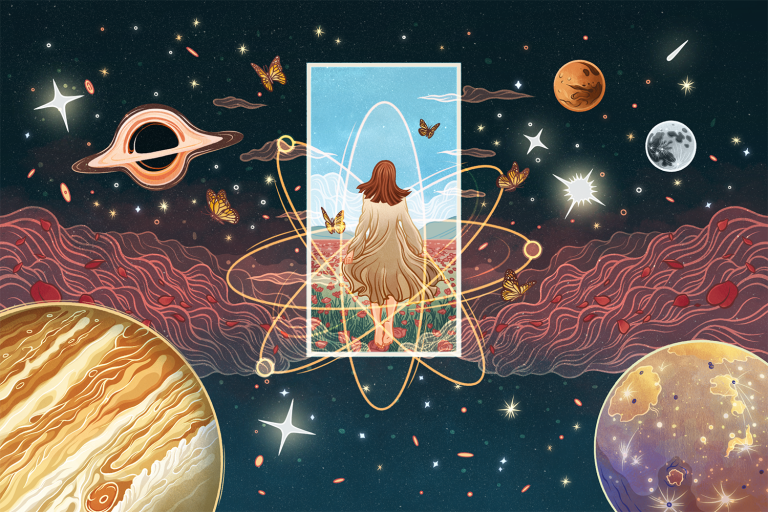
Image by Jason Lyon, © All Rights Reserved.
Guest
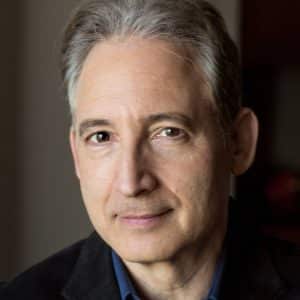
Brian Greene is a professor of physics and mathematics at Columbia University, where he is also the director of Columbia’s Center for Theoretical Physics. He is the co-founder and chairman of the World Science Festival. His books include The Elegant Universe, The Hidden Reality, The Fabric of the Cosmos, and most recently, Until The End Of Time: Mind, Matter, and Our Search for Meaning in an Evolving Universe.
Transcript
Krista Tippett, host: We could be living in a constant state of wonder at what science in this century is learning and showing us about the cosmos and about ourselves, the new questions it’s giving us to live. We are the generation of our species to map the genome and the brain, to detect black holes colliding and hear gravitational waves. And the physicist Brian Greene is one of our greatest interpreters from the human enterprise that is science. From his first wildly popular book for a general audience, The Elegant Universe, he has manifest the fascinating trajectory of modern physics, from a focus on what we can see to quantum realms of string theory and the multiverse to probing how our five senses are ill-equipped to sense the full nature of reality. He’s well-known for his dismissal of the notion that human beings have free will in any traditional understanding of that term. And yet, in Brian Greene’s most recent thinking and writing, there’s a stunning evolution of his own approach to science and life and the matters of purpose and meaning. So we’re going to delve into his exuberant, cosmic lens on living in the here and the now.
[“Seven League Boots” by Zoë Keating]
Brian Greene: My view is, the very fact that collections of particles can do the kinds of things that we can do, the fact that you and I can have this conversation, the fact that an Einstein can work out the laws of general relativity, the fact that a Shakespeare can write King Lear, the fact that particles governed by physical law can do all that — that, to me, is the wonder of it all. That to me is where it’s thrilling.
Tippett: I’m Krista Tippett, and this is On Being.
[“Seven League Boots” by Zoë Keating]
Brian Greene is a professor of physics and mathematics at Columbia University, where he’s also the director of Columbia’s Center for Theoretical Physics. He’s renowned for his own work in the field of string theory. He’s also co-founder and chairman of the World Science Festival. His most recent book, published in 2020, is Until The End Of Time: Mind, Matter, and Our Search for Meaning in an Evolving Universe.
So, you know, I’m always interested in kind of the origins of the passions and questions of a person’s life, spiritual and otherwise, in the background of childhood. I think we see so much taking root there. And it seems to me that really, from an early time in your fascination with mathematics and science, you also sensed that this was your way of getting at deep mysteries of the universe and — I don’t know — that your question, though, was not why am I here, but how am I here. That’s how you said it, somewhere.
Greene: Sure.
Tippett: Is that — and also, that in your career, in addition to your work as a scientist, you’ve become this translator and storyteller, sharing and explaining this story of science across time and in our time. And I guess what I was curious about is, where do you see the roots of that? Do you trace that back to some impulse of your earliest life?
Greene: I think so. You know, my dad — I guess with many people, with my parents — but my dad in particular, he was a composer and a singer, but music for him was not just a means of entertainment or a means of self-expression. It was really a journey toward a certain kind of truth. And I could feel him searching for that truth, and it wasn’t always a happy experience. It was a tough life for my dad, being a composer in a world that it’s hard to have your music played out there in the world. And that was part of the truth that he was seeking.
And I think when my interest turned more towards science, he was an enthusiastic promoter of that interest because it resonated with his own desire to understand life and reality more fully, but it was a different trajectory, a different pathway. And so I think that’s kind of where it began.
And then, my dad being a kind of showman, in a way — you know, being out there as a singer-comedian in an earlier age — I think I absorbed a little bit of that. And when I had the opportunity to be on the stage in a different way, talking about the ideas of science — the first time I did that was at the Aspen institute for physics. I think it was back in the 1990s. And having an audience that was so excited to hear about the ideas and so excited to understand things like string theory and extra dimensions, it really kind of captivated me as a means of connecting with the wider world, which often you don’t do as a physicist. You connect with your colleagues, but they’re very small in number. And I think that’s part of where it came from.
Tippett: Yeah, that makes sense, because you are kind of a natural on that stage.
I’m fascinated by this evolution of your work, and it’s fun to interview you a few years after we had our first conversation from the — I’d say The Elegant Universe is when you came to be — started to become a teacher to many. And then this book that you’ve published, Until the End of Time, also kind of moves beyond that, into a different territory.
But you begin with some organizing principles from physics, from science. Early in the book, you recount or remind us of this famous 1948 debate on the existence of God, between Bertrand Russell and a Jesuit priest. And Bertrand Russell’s — who was an atheist in a time when that was a very radical thing to be, right, in Western civilization. A large part of his argument was about the gradual decline into disorder that is in the law of nature. And you pick up that that concept of entropy, of gradual decline, of second law of thermodynamics. The shorthand is “things fall apart,” right? And you also don’t believe in a divine hand behind all of this. But you do say — and I think — I actually feel like you celebrate — you say a more precise understanding of the science reveals that this obscures a rich and nuanced progression, one that has been underway since the Big Bang and will carry onward, into the future. So yeah, just say a little bit about that — what you see of that nuanced progression.
Greene: Sure. Well, I suspect that Bertrand Russell would be on the same page. Sometimes, in a debate — and he was debating the existence of God — you tend to go to a polarized perspective to try to make your argument as forcefully as you possibly can. Ultimately, things do fall apart, as you say. Ultimately, there’s disintegration, dissolution, decay, a withering away of all structure in the universe. And that certainly can taint your picture of what’s it all about, what’s it all for, if it all, ultimately, goes away. And his point was, if that’s how it’s going to be, I don’t see any reason for believing in a God that would create a universe of that particular sort.
But when you look at the science more closely, you realize that that summary is a little quick, because the science itself makes clear that there can be these intermediate windows of time — in fact, we’re living in that window right now — when the universe can enjoy order. It can enjoy structure. It can be the home of beauty. It doesn’t last long, on cosmological scales, but here we are. We are these living beings whose bodies are so exquisitely ordered that we can have conscious experience. We can think and feel, and we can look out into the world, and we can figure things out, and we can puzzle about things, and we can have grief and joy and elation and pain. And all of that, collectively, is an enormous feat for a mere collection of particles governed by physical law, which is all that we are. And so to my mind, yes, ultimately it all does fall apart, but look how spectacular it is that we’re here, in this window, at this moment that the universe supports the kinds of structures — stars and planets and, at least on one such planet, living systems such as ourselves who can have these transcendent experiences.
Tippett: So I keep thinking of Augustine or Reinhold Niebuhr. Basically, this analysis, this sophisticated analysis of the human condition — that we are torn between the fact of our finitude and mortality and these intimations we have, almost at a physical level, in our bones, in our bodies, of eternity or infinity. You note a thinker named Ernest Becker, who I’m not aware of, whose, I think — what was his field? Not a theologian, but …
Greene: Anthropologist — social anthropology.
Tippett: … anthropologist, yeah, observing the same kind of thing. So you are getting at, really, as you point at this, something that has been part of existential pondering for human beings, even as we have not had this base of knowledge.
Greene: Yeah, for sure. And Ernest Becker is, for me, one of the great influences in my way of thinking about the world. He wrote a book that isn’t well-known anymore — it won the Pulitzer Prize back in the ’70s, but I don’t really hear many people speak about it any longer — called The Denial of Death. And the basic tenet of the thinking is that we are the singular species on the planet that really knows about our own mortality, and that awareness of the finite nature of our lives has a profound impact on how we live our lives, and the idea being that we do all that we can to try to deny this fact of finiteness. And so we are driven to think about things and to extol and to revere things that have a permanence to them
And of course, the kinds of things that we begin to develop are ideas that I believe come from our own imagination, but I don’t consider that to diminish them. I think that aggrandizes them. We imagine qualities of the world that transcend the physical laws. We imagine deities and gods and other possibilities which will not be subject to this mortal nature, and we invest ourselves in those qualities in order to try to imagine that we, too, might be able to touch the eternal.
Tippett: And you also, in your more recent writing, are — you’re appreciative, I would say, of the many kinds of stories that we have to tell about reality that add up to our understanding and that the inner world, the interior world — it feels to me like that has become more vital to you, more interesting, maybe, even.
Greene: Yeah, I think you’re — I think that’s an absolutely correct summary. You know, when you’re young and starting out, especially in a field like physics — at least, for me, I was just totally captivated by doing the calculations and trying to push the boundary of, say, string theory, and trying to make some headway towards Einstein’s dream of the unified theory; so all really about the science, but on a mental back burner, I knew at some point that I would need to return more fully to the thing that drove me to be a scientist in the first place, which, as we were saying before, is really, how can it illuminate us? How can it illuminate our place in the cosmos?
And physics is really good at giving insight into what stuff is made of and the fundamental laws, the particles and the equations. That’s only one story, though. So then the chemist comes along and builds from that the story of how those particles come together into molecular systems. The biologist comes along and tells another story, which is how those complex chemicals can come together into cells and living systems.
But then you really need to keep on going. You need the story that comes from the neuroscientist or the psychologist that allows us to understand how our brains allow us to engage with the world and to feel and think and understand the world. They need the story that comes from philosophy that begins to address the big questions that a brain like ours is able to start to think about — personal identity and free will and the things that really matter to us. And you do need the theological story, as well, the kinds of stories that we humans have been telling ourselves over the course of thousands of years that helps illuminate, for many people, why we’re here and what might be some ultimate meaning or purpose to our existence. And it’s only through the amalgam of all these nested stories that you get the fullest picture of reality.
[music: “Kern KPL” by Blue Dot Sessions]
Tippett: I’m Krista Tippett, and this is On Being, today with physicist Brian Greene.
[music: “Kern KPL” by Blue Dot Sessions]
You do hold a very clear sense, as a physicist and as a human being, that a human life is a manifestation of physics. Here are some ways I’ve heard you say this: an “exquisitely coordinated” matter; that we are products of “purposeless, mindless” physics. And I’ve heard people push you on this and want you — the question is, how can you then possibly speak about a search for meaning and purpose, if you see us that way?
Greene: Are you going to push me on it, too? I’m happy to. [laughs]
Tippett: I want — no, but you do absolutely go there. So talk about that.
Greene: Oh yeah, I do. I do.
Tippett: So talk about that.
Greene: So you’re absolutely right, my view from the perspective of what we are as physical beings is, we are nothing but collections of particles that are fully governed by the laws of physics. Colloquially, we are bags of particles that have a particular organization that allows for certain biological functions to take place, and that’s all that we are. Now, some would say, as you’re recounting, “Well, if that’s your view of who we are, then you’ve already eliminated any possibility for meaning or value and purpose. You’ve denigrated the very nature of what it means to be human.” And my view is exactly the opposite. My view is, the very fact that collections of particles can do the kinds of things that we can do, the fact that you and I can have this conversation, the fact that an Einstein can work out the laws of general relativity, the fact that a Shakespeare can write King Lear, the fact that a Beethoven can compose the “Ode to Joy” finale to the Ninth Symphony, the fact that particles governed by physical law can do all that — that, to me, is the wonder of it all
That, to me, is where it’s thrilling. The concept of purpose doesn’t come from the universe, it comes from us human beings. The concept of value — it’s invented by us human beings. And so the fact that we’re bags of particles only accentuates how spectacular it is that we can have even this conversation about value and meaning, and it focuses our attention, in my view, in the right direction, which is inward as opposed to outward.
Tippett: Somewhere, you said — we were speaking about entropy, right — the fact that “there” degrades makes you — gives you an even more passionate focus on the “here.”
Greene: Absolutely. When you recognize that if you look to the far future, it all goes away, that recognition focuses your attention in a spectacularly powerful way on the here and the now. And by that I don’t mean this very moment, I mean the window in the cosmological unfolding in which it’s possible for stars and planets and living systems and consciousness to exist.
So that window, on human scales, is not tiny. You can do calculations. These were spearheaded by the great physicist Freeman Dyson. But you can do calculations which show that in roughly 1050 years from now — that’s a long time, right? 1050 years from now. We’re only now 1010 years from the Big Bang. But in roughly 1050 years from now, consciousness will not be possible in our universe. The physical laws almost certainly are such that consciousness itself will be one of the things that by that point will have withered away.
Now, on cosmological scales, that window is still tiny. So in this little, tiny slice of eternity, the universe is able to support life and consciousness. And yes, it then focuses your attention on that window with a degree of energy that I think would be hard to attain without the recognition of it all going away.
Tippett: And as you’ve pointed out — and I’ve actually thought about this a lot in these very tumultuous, strange, [laughs] eventful, to put it mildly, years of this early century — there’s a way in which just pulling the lens back to a longer sense of time — not even a cosmological sense of time, but if you make it a [laughs] cosmological sense of time, there’s a certain solace in that, every once in a while, to be able to create perspective that is deeply reality-based around what feels so immediate and hard to see beyond.
Greene: And there’s a real concrete way in which — I mean, I, I think like many people, was raised in an environment that placed emphasis on doing something that would last.
Tippett: Yeah — [laughs] yes. Right, yeah.
Greene: My dad wanted to write music that would last, and I wanted to come up with ideas of physics that would last. And there’s nothing wrong with that. And that is a powerful motivator. But when you then realize that, well, nothing really lasts — right? It lasts for some period of time in the cosmological timeline, but then it all goes away — it has the impact of taking you to ideas that are incredibly familiar to anybody that meditates or has sessions with mindfulness teachers.
Tippett: Impermanence, ephemera — yeah.
Greene: Yeah, it’s something that the sages and philosophers have been saying forever, which is, what really matters is what’s here and that always looking to the future is somehow missing the point. Well, that lesson, which many of the great thinkers of the past, they realized through different considerations, my view is, you can get to that very same lesson in a kind of profoundly different way that I think gives you a different perspective on it, which is the one that we’re discussing. When you realize that everything dissolves in the sufficiently far future, that immediately has — at least on me, personally — had a profound impact of shifting perspective in a manner that focuses on the things that are here and now, not worrying about what they will be in the there and then.
[music: “Fervent” by Blue Dot Sessions]
Tippett: After a short break, more with Brian Greene.
[music: “Fervent” by Blue Dot Sessions]
I’m Krista Tippett, and this is On Being, today exploring the cosmos, humanity, meaning, and purpose, with physicist Brian Greene. His focus on these things in his latest book, Until the End of Time, represents a kind of evolution in his approach to life and to science.
I just had a conversation, coming in here, with a colleague of mine. She was telling me about this really important deadline we have, something we’re supposed to submit tomorrow, Friday, and we may have to push it to Monday. And I said, “Well, I’m getting ready to have a conversation about the next few billion years, so, like, that really gives perspective.” [laughs]
But at the same time, what I’m really curious — so people always want to ask you about free will, and I think I asked you about free will when we spoke a few years ago, and I don’t really want to go into that. I mean, you say at a human level, we do make choices and decisions, but our capacity to do so is not beyond the reach of physical law. But …
Greene: I’m happy to go there if you want to.
Tippett: Well, what I really — here’s what I’d like to get into is, these observations about us as human beings in this window of time and how extraordinary we are — I mean, I hear you talking about things. You’ll just throw into a conversation, you know, “We’ve come here by way of a 100,000 generations,” [laughs] right, again. But we are in a time — I think this matter of time and generations as they are civilizationally manifest. The example people often — and the moral, right, what kinds of moral callings or responsibilities might we have, or how would you think about moral responsibility with this view of us and the cosmos. The way I hear people draw you out on this, often, is about punishment. Like, what’s the point of punishing, if at some deep, complex level, we don’t have the kind of will that we perceive ourselves to have?
But I’m curious about something like, let’s say, the climate crisis, which in some ways is being deepened and compounded by our very inability to think and act within a longer timeline, to see ourselves in that way. How do you think about — do you have teenagers or young adults?
Greene: I do, I have a 16-year-old son and just about 14-year-old daughter, so yeah, right there.
Tippett: I think this new generation of our species is feeling a lot of things in their bodies that didn’t feel as urgent to previous generations. How do you think through something like that and the matter of moral imperative or moral responsibility or whatever language you would use?
Greene: So I mean, I do use that language, and sometimes people are surprised that I use the language of morality in the face of, as you say, my view, which I won’t go into great depth on, but I don’t think that we have freedom of will in the traditional sense. I don’t think that we are the ultimate authors of our actions. I do fully believe that our actions come from the motion of our constituent particles that are fully governed by physical laws. So I think our brains are really good at concocting a narrative whereby our actions fit into a coherent story, but that story itself suggests that we are the author of that story, when it’s actually the laws of physics, if you will, that’s the ghostwriter behind the scenes. And so where does morality fit into a picture where you are not charged with making the decision of whether to act one way or another? And where does punishment come into it, and how do we use these notions to effectuate action on things that matter, like climate change?
And my answer to that is a very pragmatic one: our use of punishment should solely be in the service of shaping future behaviors. Even things that don’t have free will can change their behaviors; or their behaviors, more precisely, can be impacted by events that they encounter. And something like climate change, yes, it’s a somewhat longer timescale issue than that of the individual, but I strongly feel that if we, as educators, can instill into our students the capacity to tell various stories of the world — one, of course, is the story of the literal right here and now, and other stories look at reality on different timescales; you don’t have to look only at the cosmological one that I like to promote; all of the timescales matter — if we can inculcate a sensibility where people are constantly looking at the world through a variety of lenses, each of which is bringing into focus a different period of time, I think that if we could get people to that place, it would be much more natural and much more second nature for people to care about issues that may not affect us right now but will affect the future health of the Earth and the species. So I don’t think we’re there yet, by any means …
Tippett: That’s really interesting.
Greene: … but that’s the approach that I take.
Tippett: Yeah. I mean, I’m fascinated by all the ways — all the different, you know, geologic time, deep time — but also the kind of biblical time, which in some ways is more like cosmic time than Newtonian time, this way we’ve restricted and compartmentalized and made a bully of time in the way we structure our society. But there’s also, consonant with that, this kind of — you know, this notion of the long arc of the moral universe — Martin Luther King, Jr. — bends towards justice. But the idea there is that we human beings alive must do that bending, right? We must throw our lives at that bending towards justice. So I’m just curious, how does that kind of language, that image, land with you?
Greene: Well, I think it lands squarely in the heart of this way of looking at the world. The vital thing is for each individual to be able to break free from the very limited conception of an individual universe, an individual moment in time, and crack that rubric and be able to recognize that the world is much bigger, the reality that they’re part of is much bigger than that. Now, I like to break it wide open so that people are thinking about time from, say, the Big Bang through the emergence of stars and galaxies and on to the dissolution of everything, but part of the point of that breaking free is that all the other temporal durations that perhaps are closer to human experience, they matter to the individual. The individual is willing to see beyond the limited conception of what’s happening literally right now and think about how things will be tomorrow or 100 years or 500 years or 1,000 years into the future.
And so when you can see the world in that way, it can matter to you how we are progressing as a species, from being one way in the world that would not be characterized well on the scales of morality and justice, and working as a collective so that we can bend, as you say, that moral arc to a place which ultimately would be a way of being in the world that would be more fruitful for everybody, more beneficial for everybody. And so to me, it’s all about breaking free from a very limited conception of what the world is.
Tippett: Somewhere, you said that the deep impulse behind the religious notion that we are all God’s children is not contradicted by science — that big, big perspective of our belonging to one another.
Greene: I would say it even — perhaps we use different language, but I would say that the moral lesson and the physics lesson, they’re really all the same. I mean, when you recognize that we emerged from particles that were part of reality from just after the Big Bang, and those particles, through the force of gravity, clustered together into certain pockets of order called stars and certain other pockets of order called planets, and on some of those planets, those particles engage, as we were describing before, in a kind of molecular combat that yielded ever more refined particles, and some collection of those particles began to think and breathe and live and wonder about reality, you recognize that we all came from the same place. We’re literally all the same. The biological processes inside of our bodies, the energy extraction mechanisms and the entropy expulsion mechanisms are the same throughout life on planet Earth in a very deep sense. You recognize that the adage that we are all together, it’s not just a Hallmark card. We are literally all part of the very same physical process, using the very same kind of biological structures.
So if you want to call that “we’re all God’s children,” I’m fine with that. My way of interpreting that would be is, we are all children of the fundamental laws and forces that guided the universe from just after the Big Bang through today and will continue to guide how reality unfolds into the ever more distant future. But it’s the same basic idea.
Tippett: I think it’s — again, just in the category of these things, we should just kind of stop in our tracks and shake our heads in amazement, right, that forever, human beings have looked at the sky and looked at the stars and wondered where we came from and that we now definitively know, factually, that we are all stardust — that we contain stardust, are made of stardust.
Greene: Yeah, in a very deep sense; but I also allow for the very real possibility that five generations, 100 generations from now, I don’t know, they may look back on our era and smile at how quaint our perspective of the world is. And the deeper insights that may one day emerge may suggest an even more profound connection between us, a more deep relationship between all structure in the world. And that is the nature of the scientific enterprise. And it’s the nature of human curiosity, that we continue to push the boundaries. And as we push ever further, we typically find astounding surprises. And what the surprises of the next generations will be, we can only guess.
Tippett: Just another thing before we kind of move completely on from this — you’ve talked about how, even within entropy, even within the decay, the degrading that you can see from the billions of years perspective, that pockets of order emerge even within great disarray. And that was also interesting to me. This may be kind of taking a scientific truth and making a false analogy, but it felt interesting to think about that in terms of this — again, this moment socially, civilizationally, this century, where there is this overwhelming narrative of disarray, and yet, I’m really fascinated in general about how social change, generative social change, happens across history. And this idea of, you can have this general disorder and that pockets of order emerge — I mean, that’s the only way that, really, forward advance is coming, I think, right now, socially. That’s obviously a huge — a huge thing to say. But I don’t know. Does that strike anything in you?
Greene: It does. I mean, I love resonances between the different stories that we were mentioning before, and metaphorically, I think it’s a wonderful recognition that the very same kind of process that allows for the stars and planets to form is the same kind of process — again, poetically, metaphorically — that can allow for the kind of social change and social progress that you’re mentioning. I mean, from the scientific perspective, we understand it well because the system is so simple, compared to human beings. We know that if you have a lot of particles, then they’re going to pull on each other, gravitationally. And when particles pull on each other gravitationally, the particles get closer and closer together. They kind of fall in on themselves. And so a disordered array of particles floating in space through gravity can come together into an ordered ball that ultimately, if it’s heavy enough and big enough, can light up with nuclear processes, and a star is born. If it’s not heavy enough, a planet is born. And so we know well this process by which a collection of particles that seem not to have any inherent order can nevertheless yield an ordered structure.
And sure, I mean, poetically it’s the same kind of thing in human species, human civilization. You need to have pockets of new idea, pockets of organization. You need to have pockets of human-focused intentions that can allow for a kind of growth, of change, to take over a civilization. And it’s the same kind of idea of going from what seemingly is disordered to something which all of a sudden can give rise to the kinds of orderly changes that can change how we live.
[music: “One warm spark” by Colleen]
Tippett: I’m Krista Tippett, and this is On Being, today with physicist Brian Greene.
[music: “One warm spark” by Colleen]
You know, it’s so — it’s cosmic, right? And yet, it’s so — there is a practical, pragmatic angle to this perspective you bring that is helpful; that is helpful at a really everyday level, I think. It can be.
Greene: I think so. I certainly find that in my own life, thinking about the world in terms of its different levels of order, different levels of organization, helps me cope with the kinds of things that we all deal with. From the everyday frustrations and the everyday tragedies that we have all been going through, to be able to take a big step back and see those in context — to recognize, for instance, that the very same process that allowed us to emerge — this evolution by natural selection — that’s a battle. It’s a battle of collections of particles for dominance. And that very same battle is what has ravaged the world over the last 18 months. It’s a battle of a different kind of bag of particles, called a virus. And so the very process that can be so destructive and so tragic when set loose on the species is recapitulating a process which, across billions of years, has allowed us to emerge and be who we are.
And I think you find that a lot, when you look at the universe in terms of these nested collections of explanations, these nested stories. There are ideas that recapitulate at one level or another. You can see the same kind of process at work in a distinct manner, at different levels of explanation.
Tippett: Draw that out a little bit more. So give me some examples.
Greene: So we have this process that I like to call the entropic two-step, whereby you can have orderly pockets form, but only if they emit enough disorder so that the balance sheet is such that disorder on aggregate goes up in the world. And I think we see that same kind of process at work in our everyday lives, as we’re trying to —
Tippett: And our social life, our societal life.
Greene: And our social lives. So there’s a kind of — there’s a kind of give-and-take that has to be negotiated in our lives in order that we’re able to progress in one way and develop in one way, but it’s always, at some level, at the expense of not doing something else or not pursuing something else or not thinking about something else. So there’s always a deep and profound give-and-take that we see at work in the formation of stars and galaxies and planets, and we see it at work in the deeply social environment that we are all enmeshed within. So I find that these resonances, you can’t take them at a literal level, because then you wind up twisting the science in a way that is no longer accurate; but seeing a poetic resonance between these ideas is something that I find deeply gratifying.
Tippett: And you use the word “poetic” there, and maybe the question of consciousness, which is just — I think, but correct me if this is wrong — more present as a scientific frontier than it was maybe at, let’s say, at the beginning of your career. And the question of, also, imagination as a force in human life — innovation, discovery of many kinds, also artistic. Do those things come together for you, in your imagination?
Greene: Yeah, absolutely. I mean, there certainly was a time not that long ago where, if you spoke about consciousness in the vast majority of scientific circles, people would kind of turn their back and look away. It wasn’t a respectable subject to be talking about.
Tippett: For the philosophers or the religious, right?
Greene: Yeah, right. And what’s changed is, scientists have finally come to a place of recognition that, with all the progress in neuroscience and all the progress made in understanding the biological makeup of living systems, that the time is right to really start to think about how it can be that mindless particles can come together and yield an inner world of emotion and sensibility and a world of thought and exploration that happens within your head, as opposed to out there in the external world. So people are now much more open, in scientific circles, to talking about consciousness, and to me personally, absolutely. You know, my personal journey began as one that was deeply trying to illuminate things that we don’t see — electrons and quarks and the fundamental laws that govern them and how they can come together into molecular objects that give rise to the richness of the world around us, what are the fundamental laws and processes, and so forth.
And in parallel with that, I always had a deep love of and a deep interest in and a deep reverence for creativity more broadly defined — again, probably having come from a home in which my dad was a composer.
Tippett: You’re back at your composer father.
Greene: Yeah, so it was all there. And so to now recognize that science can illuminate human behavior, and science can illuminate the kinds of distinguishing features that define us as human beings — I mean, I strongly feel that the reason we prevailed is that we have this amazing capacity to be irrational. We have this amazing capacity to do things that don’t make any sense, and those activities at times reveal solutions to deep and important problems that allow us to progress as a species. You know, I feel that if we were a Spock-like species — you know, if we came from the planet of Vulcan and we only did those things that made logical sense …
Tippett: Purely, purely rational.
Greene: … purely rational, I feel that we would not have prevailed. It is only by virtue of our capacity to allow our minds to freely roam the landscape of imaginative possibility that we are able to innovate in the ways that we have, collectively. And so imagination, emotion, the inward journey to understand who we are, that’s not some esoteric quality of human experience. That is how we came to be the species that we are. And it’s only through imagination and creativity and the ability to let the mind wander through the landscape of possibilities that we are able to do the things that we do.
Tippett: I want to ask you about something kind of granular, but I’m just intrigued by it. It’s in Until the End of Time. You said — of course, you have long loved mathematics, right — it’s perhaps your first love. You said, “Perhaps we will one day establish that mathematics is fundamentally stitched into the tapestry of reality. When you work with the equations day in and day out it surely feels that way.” So what it made me curious about is, have we not established that mathematics is fundamentally stitched into the tapestry of reality? Like, where are we short of that, and what difference would that make? I guess I’m just asking, what are you saying there? I’m just really curious about what you’re saying there.
Greene: Sure. Well, different people have different perspectives on this. There are colleagues of mine who are absolutely certain that mathematics is the rock-bottom quality of the world that allows it to be what it is and governs how it progresses from moment to moment and governs how it came to be, and it’s all a manifestation of the mathematical equations. There’s another group of scientists, and I count myself a firm member of that group, which looks at mathematics as a description of reality. It’s not reality itself, it’s not stitched into the fibers of how the world is put together; rather, it’s a human language, a human invention that is really good, [laughs] really good at describing how the world behaves. It allows us to make predictions about how particles behave that agrees with experiment to nine or ten decimal places after the decimal point. That is surely impressive. But I allow for the very real possibility that one day, we encounter other intelligent life in the universe, and they ask us how we’ve been going about trying to understand reality, and we show them our mathematical equations, and they’ll kind of smile and say, “Ah, yeah, we tried that …”
Tippett: [laughs] All right.
Greene: “… but it’s not the final answer. There’s something deeper.” I don’t know what that deeper thing would be, but I’m not convinced that mathematics is it.
Tippett: Yeah. The final lines of the book are: “Science is a powerful, exquisite tool for grasping an eternal reality. But within that rubric, within that understanding, everything else is the human species contemplating itself, grasping what it needs to carry on and telling a story that reverberates into the darkness, a story carved of sound and etched into silence, a story that, at its best, stirs the soul.” And I guess I’d also love to know, what does that word, “soul,” for you hold?
Greene: It’s interesting, because my brother comes at the world from a rather distinct perspective.
Tippett: Yes, I read — a Vedic perspective.
Greene: A Vedic perspective — you know, joined the Hare Krishnas back in the ’60s. And when he saw, when he read the last word of the book, he said, “Did you put that in for me?”
[laughter]
And, you know, at some level, I guess, yes. But more generally, to me, the use of the word “soul” there is really by design. It’s my way of making clear that however much of a physicalist I am, however much I am a hard-nosed physicist when it comes to what things are real, in terms of the fundamental laws and the fundamental constituents and the physical processes that are possible — however hard-nosed I am about that, I recognize that we humans are much more than that. We are much bigger than that. We have these qualities and these capacities that transcend the physical description. They emerge from the physical description, we don’t need anything else but the physics, but because of how we are configured and how organized we’ve become through evolution by natural selection, our minds can reach to the farthest edges of the cosmos and, in some sense, beyond. And it is the “beyond” quality that I think the word “soul” there is meant to capture.
[music: “Lush” by Four Tet]
Tippett: Brian Greene is a professor of physics and mathematics at Columbia University, where he is also the director of Columbia’s Center for Theoretical Physics. He is the co-founder and chairman of the World Science Festival. His books include The Elegant Universe, The Hidden Reality, The Fabric of the Cosmos, and most recently, Until The End Of Time: Mind, Matter, and Our Search for Meaning in an Evolving Universe.
[music: “Lush” by Four Tet]
The On Being Project is: Chris Heagle, Laurén Drommerhausen, Erin Colasacco, Eddie Gonzalez, Lilian Vo, Lucas Johnson, Suzette Burley, Zack Rose, Colleen Scheck, Julie Siple, Gretchen Honnold, Jhaleh Akhavan, Pádraig Ó Tuama, Ben Katt, Gautam Srikishan, and Lillie Benowitz.
The On Being Project is located on Dakota land. Our lovely theme music is provided and composed by Zoë Keating. And the last voice that you hear singing at the end of our show is Cameron Kinghorn.
On Being is an independent, nonprofit production of The On Being Project. It is distributed to public radio stations by WNYC Studios. I created this show at American Public Media.
Our funding partners include:
The Fetzer Institute, helping to build the spiritual foundation for a loving world. Find them at fetzer.org;
Kalliopeia Foundation, dedicated to reconnecting ecology, culture, and spirituality, supporting organizations and initiatives that uphold a sacred relationship with life on Earth. Learn more at kalliopeia.org;
The Osprey Foundation, a catalyst for empowered, healthy, and fulfilled lives;
The Lilly Endowment, an Indianapolis-based, private family foundation dedicated to its founders’ interests in religion, community development, and education;
And the Ford Foundation, working to strengthen democratic values, reduce poverty and injustice, promote international cooperation, and advance human achievement worldwide.
Books & Music
Recommended Reading
The On Being Project is an affiliate partner of Bookshop.org and Amazon.com. Any earnings we receive through these affiliate partnerships go into directly supporting The On Being Project.






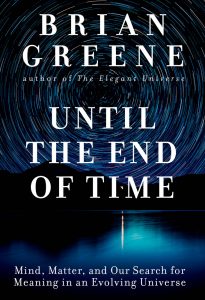
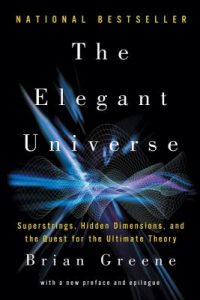
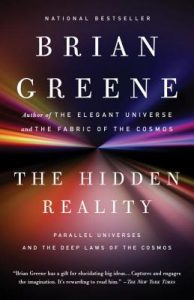
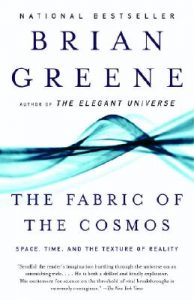





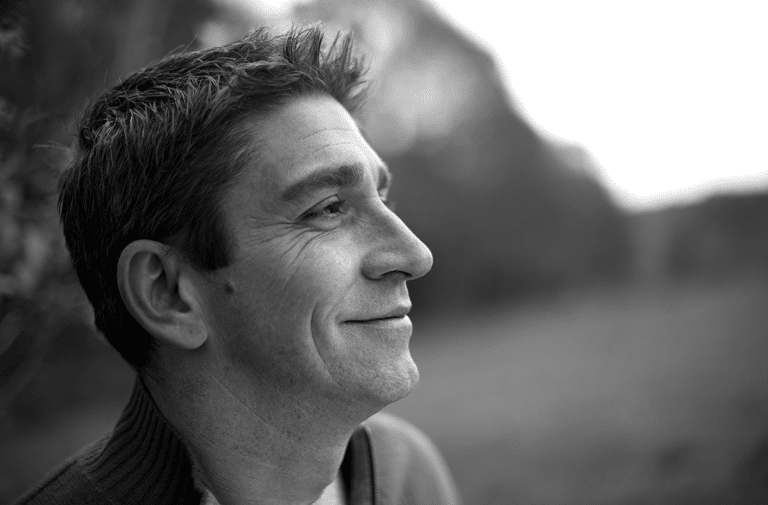
Reflections